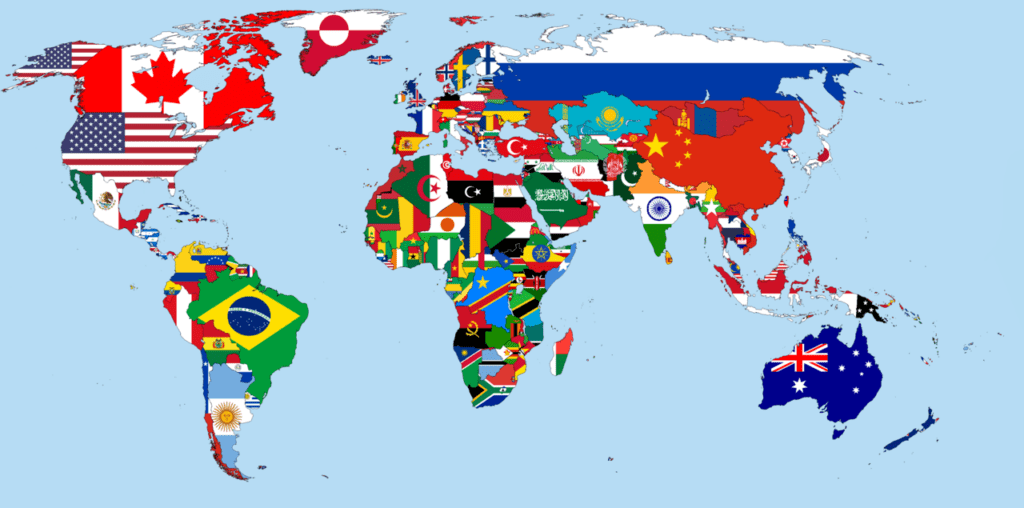

If the Conservative Party is Dying, What Should Replace It?
I
Let us assume that the Conservative Party is dead. Then it may seem as if we have to think through what ‘conservatism’ means: in order to save lower case ‘conservatism’ from the capitalised Conservatives. This is what Ed West has attempted to do – very reasonably – in a recent essay. But I do not think this is radical enough.
First of all, what we need to do is thoroughly examine our political language. There are two words which are most important here. One is ‘conservatism’. The other is ‘right’. (We can ignore the word ‘Tory’ which, for most people, conjures up Thatcher not Pitt or Peel before Tamworth.) There is an extensive literature on both ‘conservatism’ and the ‘right’: and there is also an academic literature. What I discovered in my brief foray into that literature is that most academics have an interest which is political rather than academic – they want to advocate rather than understand – and that, since this is the case, they are mostly concerned with reinventing the wheel. This should not surprise anyone: since the universities are full of miniature self-imagined simulacra of Aristotle, Linnaeus, Weber, Mendel, Einstein, Keynes, Crick and Watson, all in pursuit of the latest E.U. funding to support strictly mandated and correctly languaged projects. Peter Thiel may amuse himself with writing a book about the fact that we have to get ‘from zero to one’: but the thing is impossible (unalgorithmable): we might as well prosecute it with a crystal ball or a zodiac chart or tarot cards as with textbooks, monographs and articles. But I digress. Originality is rare. Originality of a Thiel or Musk variant is ‘monetisable’, to use the jargon of the day. Other originality is not. And to save our society we need a political originality which would involve an almost impossible amount of abstemiousness and determination.
Let us consider the two words ‘conservatism’ and ‘right’.
These conjugate the political world in different ways. Let me explain how they are generally used, and how I think they should be used.
‘Conservatism’ is generally used to mean ‘holding on to what one has now, in the present’, hence ‘conserving’ something, and being ‘conservative’. As Oakeshott explained some time ago, in this sense it is nothing to do with the past. It is about the present.
I find this unsatisfactory. Oakeshott said something brilliant, but it was a trick. For conservatism – and I have argued this at length in a few academic articles – is ultimately a political inclination or impetus or movement in politics which is particularly concerned with time.
What time? The answer to this is slightly complicated. But before I give it I should say that a preoccupation with time is a sign that we live in a modernity in which we are separated from truth. One should always distinguish ‘truth’ and ‘time’. If something is true, then it is true for all time: it is eternal in its truth. This is what truth always meant. But as soon as we suppose that everything changes in time, then truth is put to the question. Since the 18th Century, say, since what we should probably call the ‘historical revolution’, we have increasingly made sense of the world not in terms of truth (for instance, Biblical truth) but in terms of time (for instance, Hegelian, Comtean, Darwinian time). Time has wreaked havoc on truth (though many scientists, engineers and technologists have bracketed their endeavours out of time and so ignore this fact). And this is of essential political significance. This is because our politics – the politics of the last two hundred years – is the politics of the historical revolution. We usually call it ‘liberalism’ or something similar: and we believe that truth, even scientific truth, is not something to be discovered but something to be settled through argument, debate, deliberation and, if necessary, decision. (Again, COVID-19 demonstrated the truth of this to even the most obstinately unaware of us: of how political decision has commandeered the ship of science for its own piratical purposes.)
So I would prefer it if conservatism were to mean not simply what the scholars since Oakeshott say it means – holding onto things in the present (attempting to bracket out time) – but a complicated and contradictory position which attempts to combine this view with the view that it is about holding onto and conserving a world that is not only lost but was deliberately destroyed: the world of the ancien régime which existed before the French Revolution, the world of church-and-state which existed before the repeal of the Test and Corporation Acts and Catholic Emancipation, the world of Bede and Bracton and Burke, or Gildas and Gibbon, or Hooker and Hale.
Conservatism is internally torn, therefore, between holding onto what we have (even though we have lost so much already) and holding onto what we had before we lost it and thus became conscious of requiring a politics of lament which would somehow make sense after the loss.
Is this clear? Conservatism is contradictory.
I used to think of myself as ‘conservative’; now I do not particularly. I never thought of myself as on the ‘right’: I disliked that sort of language, since it always seemed to be used by those on the ‘left’ to put themselves in a good light. But now I think there is something valuable in the language of right as long as it is properly understood. Again, we have to differentiate the way ‘right’ is generally used from how I think it should be used.
The word ‘right’ is generally used to suggest that politics is divided into a binary opposition. This is, interestingly, a spatial determination, whereas the word ‘conservative’ implicitly makes a temporal determination. As I have argued, conservatism is about time; whereas ‘right’ and ‘left’ appear to be about space. So we have to imagine a spatial rendering of politics, with two wings or sides, right and left. But this is not all. Left is on the side of revolution and also reform, which means that we may consider left to make sense in terms of an ideal – the sort of enlightened ideal which is so important in enlightened politics (liberty, equality, fraternity, etc.) – or to make sense, simply, as progressive. If we see left this way, as we usually have to, then right is the opposite: it is the politics of a lack of ideal, hence a politics of reacting against ideals, in fact, of inertia, stubborn resistance to what is inevitable, or it is, simply, again, the politics of conservatism against the politics of progressivism. All this, I would say, is the standard view of politics. It means that we can broadly say that ‘right’ is ‘conservative’, ‘left’ is ‘progressive’. Left means ‘wanting to make the world better’. Therefore, right, conveniently for those on the left, must mean ‘not wanting to make the world better’.
The problem with this, as far as I am concerned, is that left always has positive valency: positive ideals, a positive appeal to progress: to which any right politics is simply defined negatively: as negative about ideals, as involving a negative appeal against progress. The right sounds sour and sullen. The right obviously has great force, but this force may seem to be inertial to a fault: only manifesting itself with inevitable slowness after the progressives have led us into yet another calamity. I wrote in an earlier article for the Daily Sceptic that left is always positive: it means equality, where right means inequality; it means progress, where right means regress; it means planning, where right means lack of planning; it means intelligence, where right means stupidity.
A better definition of ‘right’ in politics, therefore, is not a spatial one which suggests that ‘left’ is a positive extreme and ‘right’ a negative extreme. We want to avoid this sort of thoughtless BBC way of constructing political sense. Instead, with reference both to the older meanings of ‘right’ and ‘wrong’, but also the new psychology which has shown that the right hemisphere of the brain is superior to the left hemisphere of the brain, not in point of force, penetration, innovation and argument, will, but in point of balance, proportion, relevance, grace and awareness, I have suggested that from now on ‘left’ politics should be taken to be extreme politics in any direction (any politics of extremity, including what we have until now called both far left and far right, and also including extreme centrism, technocracy, etc.), whereas ‘right’ politics is the politics of proportion and inclusion and deliberation and consideration of every relevant element, including elements we have inherited from the past and elements we consider worth preserving for the future. Here, a ‘left’ politics is a politics of rationalism, of solutions, of vaccines, of mandates, of propaganda, of coercion, of cancellation, of mediocrity, of models, of experts, of ‘excellence’, whereas a ‘right’ politics is a politics of patience, propriety, respect for diversity, awareness of complexity, stern sense of responsibility, interest in religion, music, poetry, history and so on. (Owen Jones is on the left; so is ‘Antifa’; but so are any fascists who happen to exist in the real world, if there are any. So is Gove. So is Cummings. Anyone with an extreme, hasty, abrupt, ideological, certain politics is, in my book, on the left.)
In fact, almost everyone in modern politics is on the left.
What I am saying so far is that there are rival meanings of both ‘conservatism’ and ‘right’ which mean we cannot use them interchangeably without committing ourselves to one way of seeing them, and that this way of seeing them usually involves a capitulation to the objectionable politics of progressivism or the left. It hands our opponents the moral advantage. There is value in the word ‘conservative’ and in the word ‘right’ but they have to be used with care. And I am not sure current conditions mean that we can use them with care. Now, no one in practical politics is likely to think my thoughts about conservatism are anything other than academic, and, worse, involving awkward contradiction (and even academics sympathetic to conservatism seem to agree), while no one is likely to be able to remember for long enough my novel definition of right to use it against the grain of a century at least of usage of the term in another, narrower, sense. So I think that political reconstruction needs another, not necessarily wholly original, but certainly uncommon, language which can enable the sort of points we want to be made to be made.
II
Let me begin the second part of this consideration with an observation which is meant to put a question against the entire tradition of political thought in our civilisation over the past few centuries, possibly even since Machiavelli. Our traditions of political thought, certainly running back in organised university teaching going back to the late 19th Century, but going back much further than that because of the ubiquity of classical education between the humanism of the 16th Century and the grand tours of the 18th Century, have always had a remarkable positive valorisation of cities.
Think of certain important words. Civilisation, as opposed to barbarism – a word derived from civitas, the Latin word for city. Then we have civil or civic, as opposed to pagan. City as opposed to country. The word ‘politics’ itself derives from polis, the Greek word for city. My etymological dictionaries seem to want to insist that there is no relation between the word polis and the word ‘polite’: but this seems unlikely when one considers civitas, civilised and ‘civil’.
But then think of modern politics in modern states – especially, since we know about them, the politics in the United Kingdom and the United States of America. In England, cities are red, broadly speaking, and the counties are blue. In America, with colours reversed, but polarities the same, cities as well as coasts are blue, broadly speaking, and the country is red. Even in Arizona the closer one moves to Tucson and Phoenix the bluer the ground. So there is an apparent correlation between cities and also universities, and what we commonly think of as ‘left’ or ‘progressive’ politics, while there is also an apparent correlation between countryside and what we commonly think of as ‘right’ or ‘conservative’ politics.
Then, as Ed West reminds us, we have to add to this the stark and arresting fact that, again, broadly speaking, the counties and the country are holding up in the way of civility, while the cities are increasingly collapsing into inegalitarian disorder, as criminals, the homeless and the poor cluster in liberal cities looking for sustenance and substance, providing a contrast to the elites who glide back and forth from gated community to gated community. London and San Francisco have new ghettoes, and no-go areas.
Aristotle thought that man was by nature a political animal, zoon politikon. By this meant that one’s destiny, as a human, was to live in the polis: in order to flourish one had to live a political life, in a small, face-to-face self-governing community. Hence the vast prestige of cities in the history of political thought. Greeks valorised the city. So did Rome. Even when Rome became a monarchy for a second time under Augustus it maintained the pretence that it was a ‘republic’, a ‘public thing’ (res publica), and that it was a city. Citizenship in the Roman empire was formally citizenship of the city. And, as all Europeans know – and even Americans (consider the Capitol, a copy of the Capitoline Hill in Rome) – Rome retained vast prestige for centuries, right through to Mehmet the Conqueror (destroyer of the empire in the east) and Napoleon (destroyer of the empire in the west). The Pope – whom Hobbes called the ghost of the Roman emperor – still survives, red-shoed, like an emperor, testimony to the status of a city and its ruler.
So anyone who is educated in ‘politics’, or is ‘republican’, is, in effect, espousing a politics which leads not to an American city on a hill or Rome found in brick and left in marble. On the contrary: cities have become the barbarian wastelands of modern states. And the country, benefiting admittedly from centuries of civilisation, but also benefiting from continued awareness of the cycles of natural life, has held onto itself rather better. Its politics is, broadly speaking, more balanced, more proportioned, more aware of the consequences of intemperate activity: in a word, it is more ‘right’ than ‘left’, and, in another word, it is more ‘conservative’ than ‘progressive’.
So I think we might as well proclaim the need for a country party. The city, the expanded city – that concrete urban agglomeration – created by the court, is corrupt. The ‘court’ is the panoply of public power. The city has corrupted all our institutions, has marched through them. And, and has felt very republican and political not to mention well remunerated while doing so. It is in the country that we find a better sense of the importance of tradition, of marriage, of church, of nature, of heritability, of caution – all things Ed West has mentioned in his piece. Even if we live in cities we should all be ‘country’.
To say this is to say something quite possibly generalisable to America, but also elsewhere. Certainly, anywhere where the cities are dominated by tax-and-spend institutional systems and by vast and wealthy corporate magicians and modellers, anywhere where the culture is ‘liberal’: excessively open, and diverse, and pensioned: anywhere like this is corrupt, corrupted by the pots of gold which are not found at the end of the rainbow, and certainly not anywhere so obvious as the pavements of London, but within certain offices and addresses in London, behind doors closed to those who refuse a certain sort of unscrupulous pleonexia (a great old Greek word for avarice) allied to modern synthetic sympathy for the poor and marginalised and oppressed.
I do not know how our politics can be reversed. The cities are dominant. In the United Kingdom it even seems as if the City is dominant. The universities are bought and sold. No one can publish a book worth reading nowadays. Somehow the ‘legacy’ world of media and publishing is managing to keep alive the fatuities of Late Night television and Kindle novels and Netflix entertainment. Almost all academics seem to think they are being wonderfully critical and original and edgy by supporting the tortured and vacuous politics which it is the purpose of the Daily Sceptic to chastise, caution and sometimes outright condemn.
The Conservative Party is only holding onto the counties and the country in England because there is no serious alternative to it. But what has to be admitted, as Ed West has suggested, is that the MPs are, broadly speaking, exhibits of city consciousness. They don’t believe anything, don’t think anything: they parrot clichés, which are appalling, since they are the clichés of a thoughtless, monotonous, unopposed capitalist bureaucracy: with its mundane language of ‘skills’ but also ‘services’, ‘products’, ‘processes’, ‘policies’, ‘deliverables’, ‘passion’, ‘values’. Modern politics is a cross between The Office and Instagram. (Here is a photograph of Sunak next to Macron at COP-27; here is a photograph of Sunak next to Zelensky; here is Sunak with some candles.)
In short, what we need is a Country Party.
III
Let me go even further. I think that institutional and constitutional and civilisational recovery ultimately depends on the church. And the church is nothing without the state. We need a church party. But the church should not be what it used to be, ‘the Tory party at prayer’ or what it has become, ‘the Labour party at a funeral’. The church has to be supported by the state. But the thing is impossible, one might say. Well, as my teacher Maurice Cowling once wrote, Christianity cannot survive if the visible panoply of power is devoted to its subversion. And this is currently the case. I see no way of reversing it without force. Sometimes we talk about encouraging marriage through taxes. Well, the church needs encouraging: and this is impossible without a restoration of tithes. We need, if we want to recover a Christian – that is, anti-city, anti-Machiavellian, anti-Hobbesian, anti-Marxist – foundation for politics, to endow our church properly, and to direct funds towards it: not by civil lists or controlled endowments but through tithes. Then, even for standard self-interested reasons, the sort of young men and women who enter vacuous corporations, would consider entering a far less vacuous corporation, which is the church. This is not about belief. Belief is important, even fundamental; but belief is a skandalon, as it was always, and always should be – something offensive. But here we are talking about a civilisation. If hypocrisy is the tribute vice pays to virtue then we have to think hard about what sort of virtues we should be paying tribute to, we hypocrites. I think the sort of purity implied by Dostoevsky’s Grand Inquisitor is dangerous, because it threatens to make Christianity too pure for the world. It is; but it is not. It is a purity which came into the world, and is meant to exist in this world. I, too, am a hypocrite, no doubt: but here I am speaking politically, responsibly, rather than confessionally. And the political situation is unlikely to be recovered by an even more emphatically ‘conservative’ Conservatism than the one we currently have.
But it is an intriguing thought. For the sake of civilisation, to have an established church but also a properly endowed church, with incentives for everyone, even non-communicants, non-believers, to suppose it is their church: restoring local communities, which would become something more than houses arranged around a supermarket.
A country party would be something: though unlikely; and a church party would be something else: and likely impossible. The question is how many people are capable of understanding all this. I imagine most Conservative MPs would withdraw and say it was ‘unrealistic’. But I find it hard to see how a Country Party could be conceptualised without a core, and the only core seems to be Christian. I am not advocating theocracy: on the contrary, I am advocating balance (though, formally speaking, we might need a century of theocracy to restore the balance). Balance: for the reason that on the one hand Country is national, it is ‘my country, right or wrong’, while on the other hand Church is universal, ‘not my country, when it is wrong’.
In short, I think we need our Country Party to also be a Church Party.
IV
This might seem an exaggeration, and it likely is: a reactionary musing, or partly reactionary. So be it. But the truth about England is that it always sought a politics of balance: balance between Norman and Saxon, balance between King and Barons, balance between Aristocracy and Merchants, balance between Newspapers and Good Order, balance between Liberals and Conservatives, balance between Matthew Arnold’s strictness of conscience and spontaneity of consciousness. Our dislike of the French Revolution was a dislike of upsetting balance. But in the last century there has been a silent revolution, and our current ‘court’ is a single party which believes all manner of things with absolute certitude. The balance of the constitution is gone. To be balanced is now an extreme position. And this has not been what British politics has been about since, let’s say, 1688, but I think even earlier than that – the Stuarts proved it. So it may be that I am exaggerating here; but there is no question that the liberal destruction of the church has not meant the realisation of a perfect balance and harmonious constitution: on the contrary: it has led us to our current rainbow monotony and our politics of the holy cypher, the number zero. And it is necessary for us all to think seriously about this. We are far too Hellenistic nowadays, and not Hebraic enough. (One could say we are going to Hellenism in a handcart.) If I had the range or influence I would summon Sumption, Tombs, Hitchens and Malcolm – our leading thinkers – and get them into conference and then to contribute to an important book about all of this. Then it should be imposed on the Lords, browbeaten on to the Commons, driven through clubs and churches and schools, like a secular Bull: and it should stand in judgement on the Guardian, not the Guardian stand in judgement on it.
Anyhow, for the moment, this is the verdict. Any serious reconfiguration of a Conservatism or the Right will be empty if it does not recognise that the first problem is how to weaken the current Court established in the City and with its entirely civic consciousness, so that a Country sensibility can be restored to the balance of the constitution: and, further, it will remain empty if it does not recognise that the first problem cannot be solved as long as the State poses as a secular church and as long as the real Church fails to understand its social and political purpose – quite apart from its religious one – which is to stand for the Country against the City. (Its religious one is to stand for the truth against both Country and City.) Only by getting a bit of Becket’s spirit back into the Church, and also, cynically, restoring to the Church some of Henry VIII’s exactions, can we restore some of the old balance of the constitution.
All this aside, I find it hard to see how the State is going to stop offering incentives for us to believe in surrogate religions like the three great ones the Daily Sceptic continually calls into question. These surrogate religious beliefs are the demonic and distorted tributes which the vice of the City pays to the memory of virtue: and this City has our State in its control. I find it hard to see how the rot can be stopped.
Stop Press: Sherelle Jacobs in the Telegraph says that if the Tories keep on going at this rate they aren’t just risking a defeat at the next General Election, but permanent oblivion.







